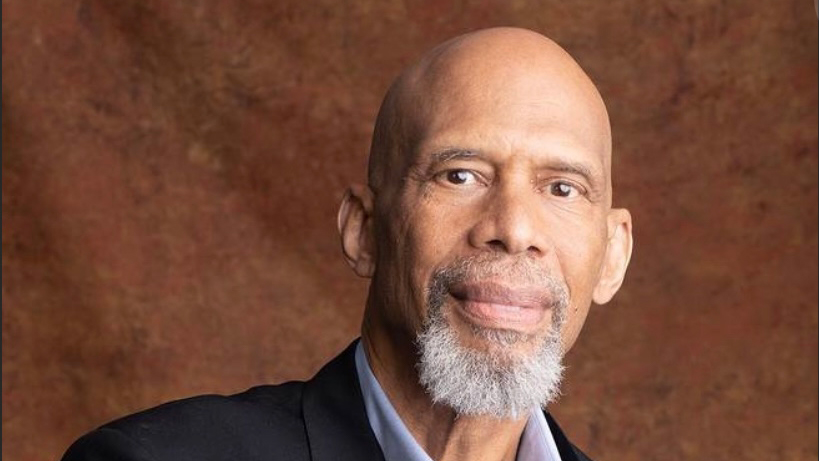Q&A: NBA Legend Kareem Abdul-Jabbar Champions U.S. Social Justice Movements In History Doc
NBA Hall of Famer says athletes have right to speak out on social and political issues

The smarter way to stay on top of the multichannel video marketplace. Sign up below.
You are now subscribed
Your newsletter sign-up was successful
NBA legend and social activist Kareem Abdul-Jabbar has teamed with History to highlight the social justice movements that helped shape America.
The documentary, Fight The Power: The Movements That Changed America, premiering on Juneteenth (June 19), explores the way in which various movements have changed the country for the better, from the labor movement to women’s suffrage to the LGBTQ+ and Black Lives Matter movements, according to History.
Abdul-Jabbar, who has worked with History in the past as executive producer on the 2020 documentary Black Patriots: Heroes of the Revolution, recently spoke to me about The Movements That Changed America project as well as his thoughts on the recent movement against racial injustice and police brutality stemming from the 2020 death of George Floyd. Abdul-Jabbar also chimes in on the controversy surrounding the social activism of NBA players in a wide ranging interview, an edited version of which appears below.
Picture This: What attracted you to this project?
Kareem Abdul-Jabbar: I think it gives a good perspective on free speech and the ability to challenge situations that we don't accept. I think that that's really what we should point out and I think this is a great way to show people how they're all really related.
PT: What does History bring to the table for you?
KAJ: I think History focuses on things that most Americans didn't understand when they were in history class or were never exposed to. I think by having this opportunity for people to see how important it is and what these changes involved and how they are still with us in our daily lives now, I think that will help people understand its importance.
The smarter way to stay on top of the multichannel video marketplace. Sign up below.
PT: How relatable and relevant are some of the past movements to a new generation that is driving today’s social activism?
KAJ: The way that they can react to it is to understand that unless all people who are marginalized are involved, none of us are going to be free because they’ll just go from one group to another in terms of singling them out and making their lives miserable. So we have to understand that it's a cyclical thing. We have to constantly be involved in making sure that no one is left out, that everyone is included and everyone's rights are respected. Unless everyone's rights are respected eventually they will get around to your group and start stepping on your toes.
PT: Have you been impressed by the continuing social justice movement that began last year?
KAJ: Yes. What’s really made me feel encouraged is the fact that it's not just one narrow group, but a lot of different groups. You have Black Lives Matter, you have LGBTQ groups who are talking about their issues, you have the labor group issues, and it goes on and on. I think that it's really great that we're starting to get some cooperation between all of these groups and that they're starting to support each other in ways that can make for meaningful change.
PT: Are you also encouraged by athletes who have been outspoken on many of these issues?
KAJ: NBA players have built a decades-long tradition of activism, championing their communities and advocating for change. I remember when I came into the league my team, the Milwaukee Bucks, had the very first Black general manager, and that was a step forward. I could see that the NBA was interested in making sure that inclusion and openness is part of what they're all about.
PT: Some people have criticized NBA players in particular for speaking out on social and political issues, saying that they should stick to playing the game. What do you say to those people?
KAJ: Everybody has the right to talk about the things that concern them, even professional athletes or entertainers. The whole idea of shut up and dribble is like saying, ‘you have a good job so don't complain about things that are definitely disturbing and need to be changed.’ The fact that I have a certain type of job should not exclude me from being able to speak my mind.
PT: Do you aspire to develop and produce content for television?
KAJ: I hope to do more productions like this and also to get into some dramatic depictions of all of this. There’s a series on Amazon called The Underground Railroad that’s talking about things that we should all know about. The Underground Railroad itself is very misunderstood, so I see the opportunity for people to understand our struggle and to give them the opportunity to empathize.
R. Thomas Umstead serves as senior content producer, programming for Multichannel News, Broadcasting + Cable and Next TV. During his more than 30-year career as a print and online journalist, Umstead has written articles on a variety of subjects ranging from TV technology, marketing and sports production to content distribution and development. He has provided expert commentary on television issues and trends for such TV, print, radio and streaming outlets as Fox News, CNBC, the Today show, USA Today, The New York Times and National Public Radio. Umstead has also filmed, produced and edited more than 100 original video interviews, profiles and news reports featuring key cable television executives as well as entertainers and celebrity personalities.

